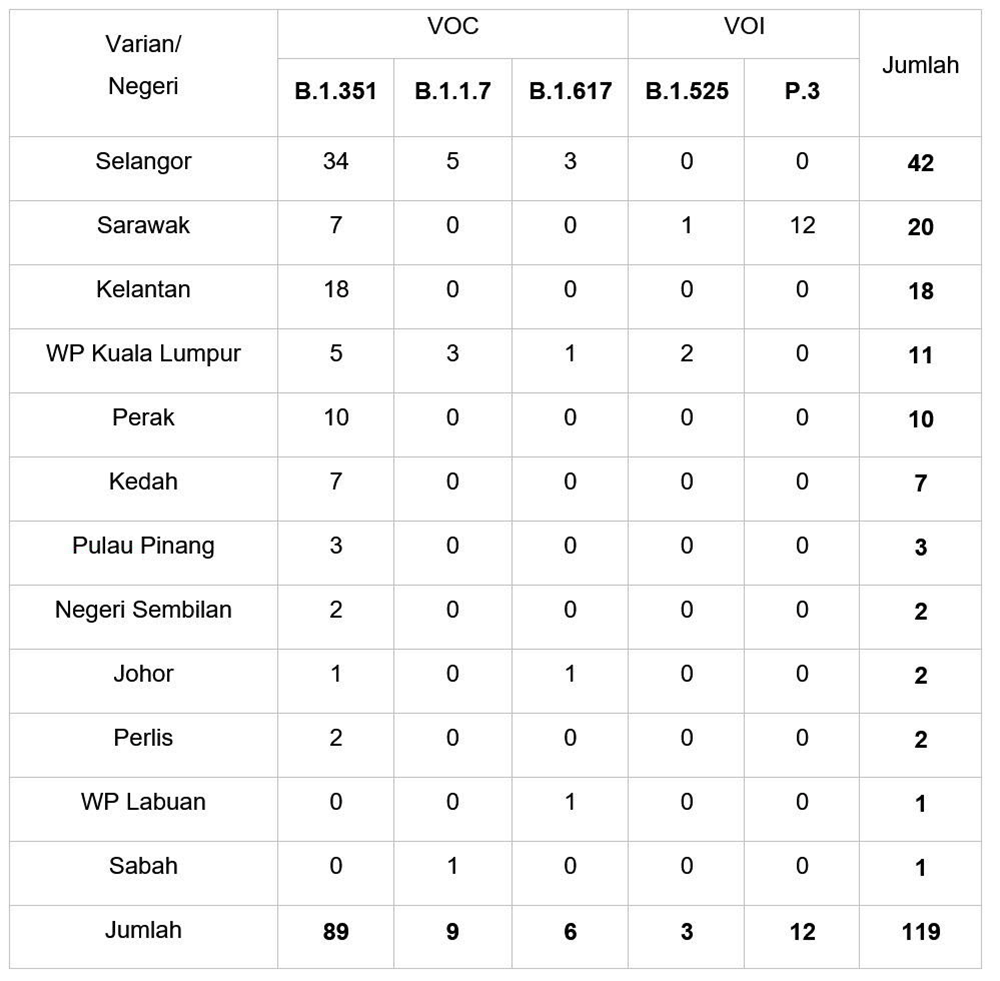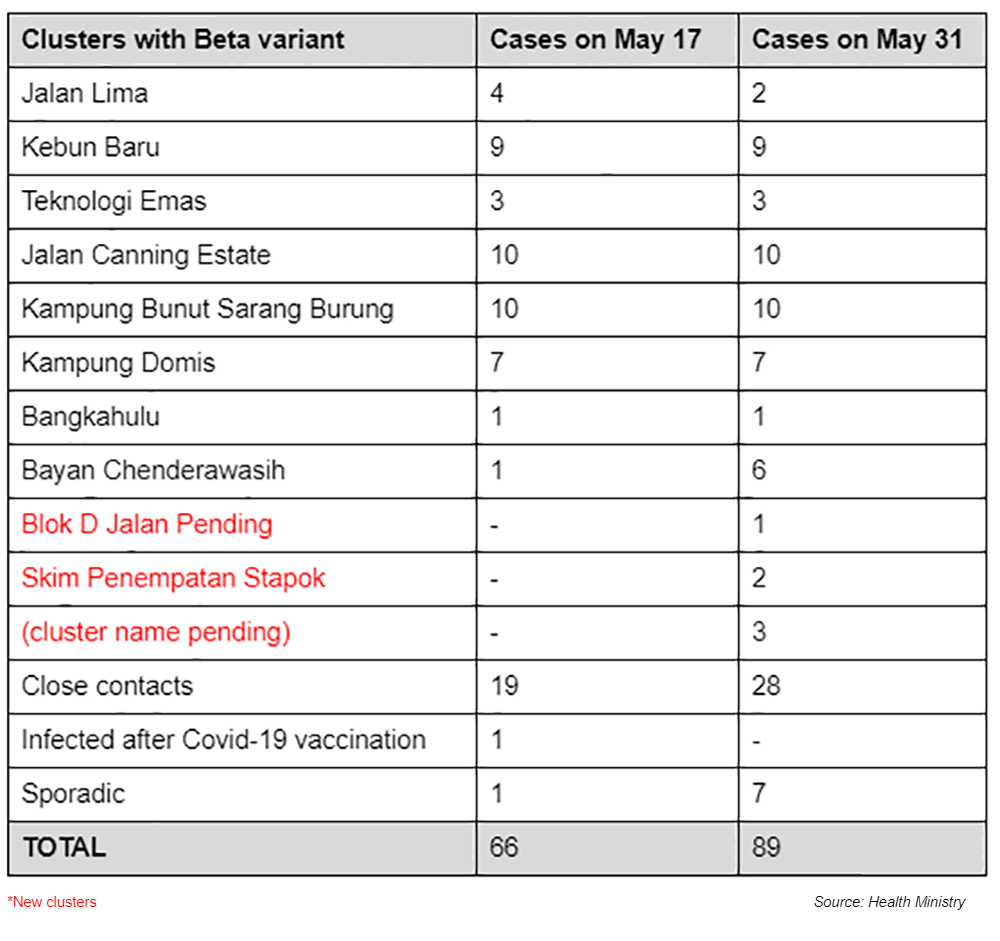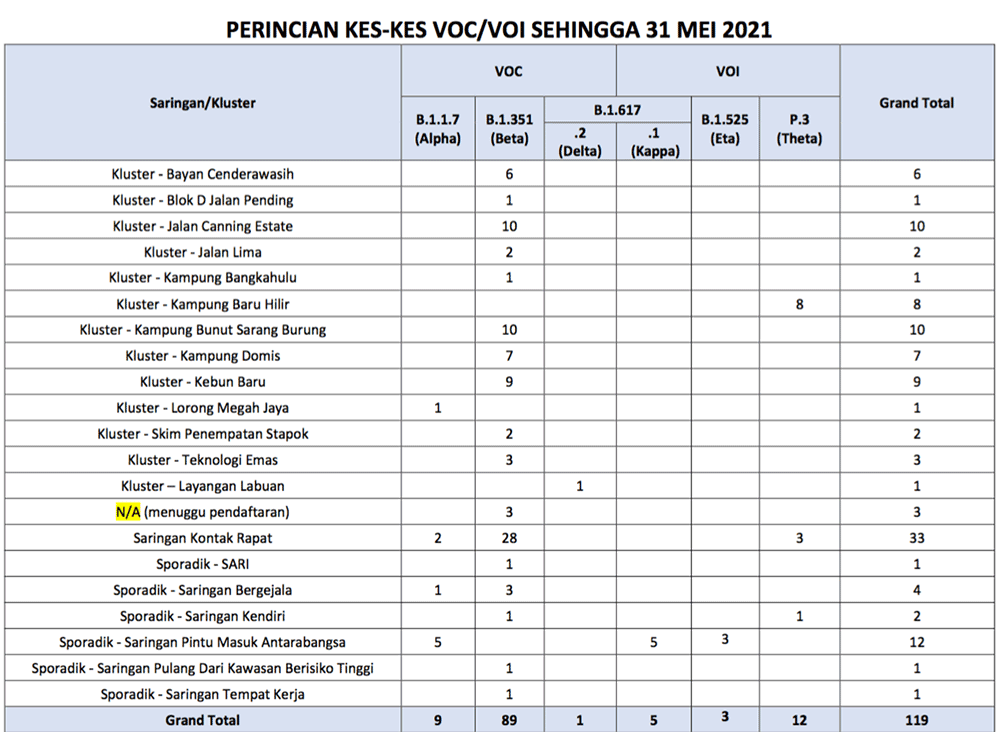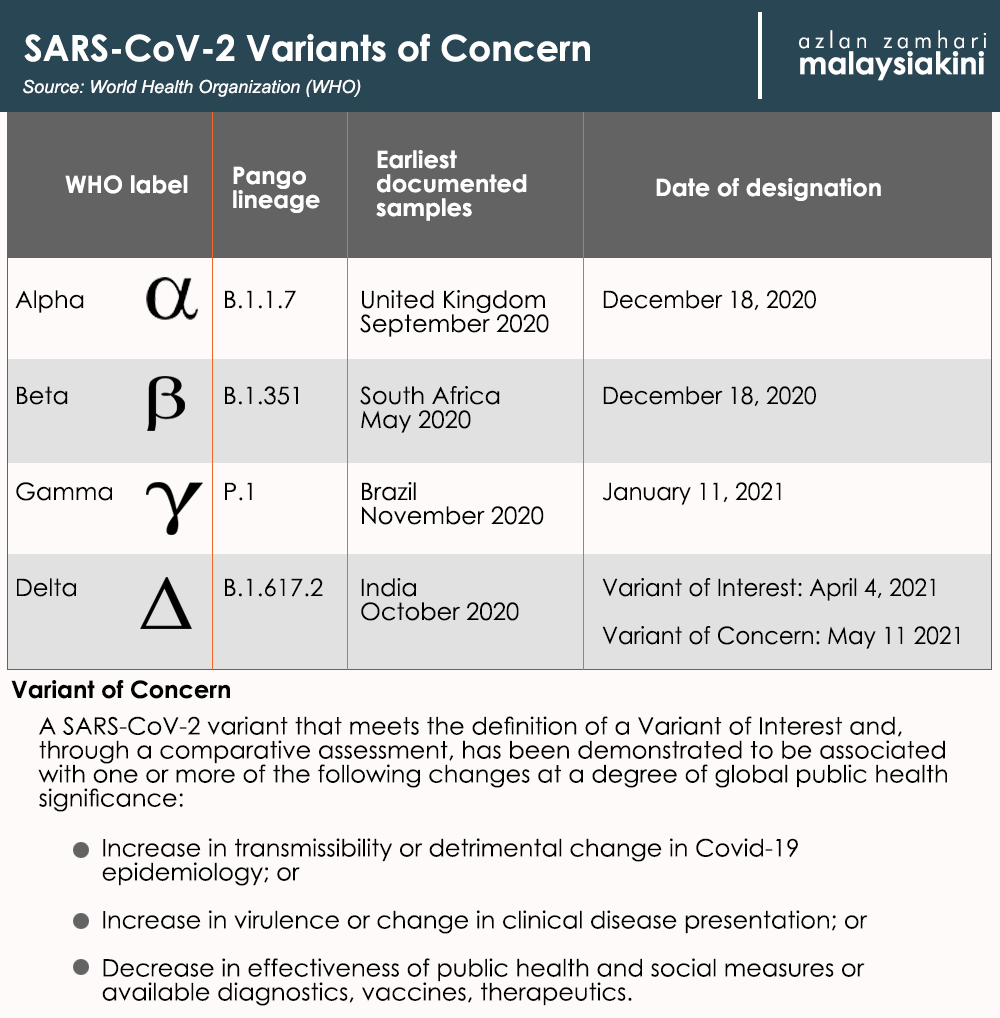Based on the latest data, the Health Ministry believes that the Covid-19 variant B.1.351 is spreading fast in the community.
Also known as the Beta variant, 89 such cases have been detected in nine states and one federal territory as of May 31.
The variant, first detected in South Africa, is known to be more transmissible and more resistant against the current crop of Covid-19 vaccines.
Only Sabah and Labuan reported no cases with the variant. It was most prevalent in Selangor (34 cases), Kelantan (18 cases) and Perak (10 cases).

Speaking to Malaysiakini, Health director-general Dr Noor Hisham Abdullah (above) said the Beta variant has been detected in numerous clusters nationwide.
“We believe the B.1.351 variant is spreading fast (and has spread) to at least three (more) clusters.
“This started with three cases in Selangor’s Kuala Langat district,” he said.
In the past two weeks, 23 more cases have been detected - many of them close contacts and sporadic cases. Three new clusters were identified.
Sporadic infections are cases that have yet to be linked to any cluster and in which the source of infection is not yet known.

Other variants
Aside from the Beta variant, other Covid-19 variants are also spreading.
Noor Hisham shared that 12 cases of the Theta variant (P.3) have been detected in Sarawak - eight from the Kampung Baru Hilir cluster, three close contacts and one sporadic case. This variant was first detected in the Philippines.
From May 17 to 31, cases of the Alpha variant (B.1.1.7) increased from three to nine. Five cases were reported in Selangor, three in Kuala Lumpur and one in Sabah. This variant was first detected in the United Kingdom. 
Meanwhile, one more case of the B.1.617 variant has been detected since May 17. As of May 31, six cases were reported in Selangor (3), Kuala Lumpur (1), Johor (1) and Labuan (1). The Delta variant originated from India.
Three cases of the Eta variant (B.1.525) have also been reported - two in Kuala Lumpur and one in Sarawak. This variant was first detected in Nigeria.
In total, 119 Covid-19 infections involving variants of concern and variants of interest have been detected in the country.
“The Health Ministry will continue to enhance infectious disease control by continuing to perform genomic sequencing, increasing testing, contact tracing, isolating cases and other public health measures to reduce infections in the community.
“Aside from the lockdown which begins today, enhanced movement control orders (MCO) will be enforced in areas that report many cases.
“These enhanced MCOs are done to stop Covid-19 from spreading to other localities. It allows for active case detection to be done in a targeted way on the local community,” Noor Hisham said in a statement.

Mutations are inevitable
The Beta variant is known to reduce the efficacy of Covid-19 vaccines.
In particular, the AstraZeneca vaccine was found to have significantly reduced efficacy against mild-to-moderate manifestations of the disease. Its efficacy in preventing deaths and serious illness is still being studied.
This had prompted the government in South Africa - where the Beta variant is prevalent - to suspend the roll-out of the AstraZeneca vaccine in favour of other vaccines that are less affected by the variant’s vaccine resistance.
AstraZeneca had said it is coming up with an updated vaccine late this year.
Pfizer and Moderna vaccines were found to have reduced but still adequate protection against the variant. Both companies are already running mid-to-late phase clinical trials testing reformulated vaccines targeting the Beta variant.
Asked if the National Covid-19 Immunisation Programme (NIP) will be tweaked given the spread of the Beta variant, Noor Hisham sidestepped the question. The programme at present includes Pfizer, Sinovac and AstraZeneca vaccines.
The top official indicated that NIP will proceed as planned.
“All vaccines decrease a little in efficacy.
“Our aim is to increase the vaccination drive. For example, the Pfizer vaccine has 95 percent efficacy but with a variant, it is at 75 percent (which is) still within acceptable limits.
“Inevitably, more mutations will be discovered, with variable response to detection and protection from vaccines,” he said. - Mkini




No comments:
Post a Comment
Note: Only a member of this blog may post a comment.